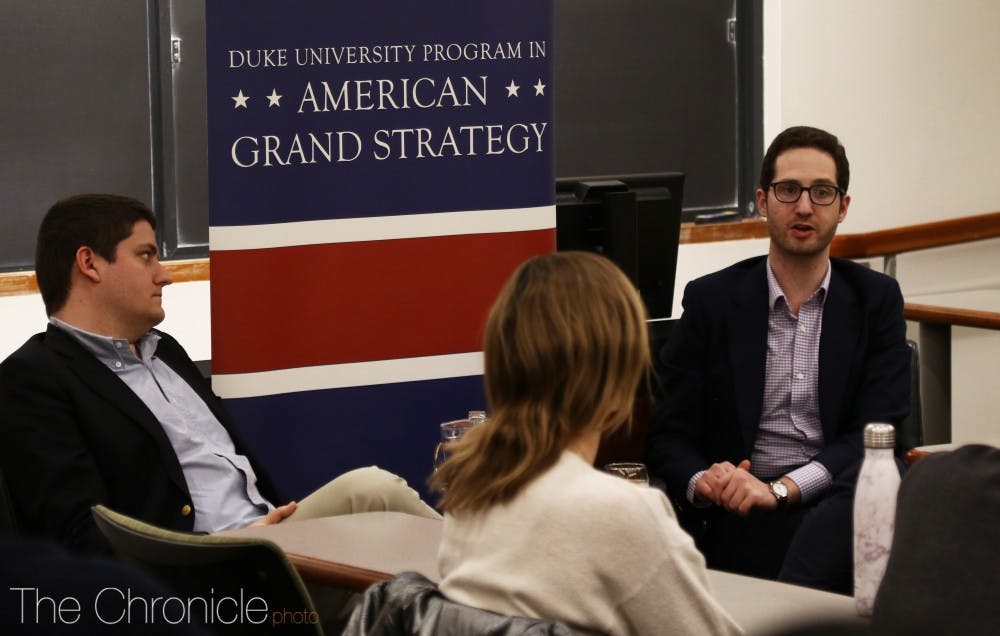The United States got more out of the Cold War than just getting out of it, author Joshua Shifrinson argued at a Thursday talk.
Shifrinson, assistant professor of international relations at Boston University, said the United States happily tried to figure out how to take advantage of Soviet shortcomings. American Grand Strategy hosted the talk by Shifrinson at the Sanford School of Public Policy called "Rising Titans, Falling Giants: How Great Powers Exploit Power Shifts" as a part of their History in International Security lecture series Thursday evening.
"The United States won the Cold War, but at the same time it did indeed prey upon the U.S.S.R.," he said. "Let's not delude ourselves on this issue. If you look at American planning documents...the United States is gleefully trying to figure out how to take advantage of Soviet weaknesses."
According to Shifrinson, the United States attempted to coerce the Soviet Union to adopt Western standards on numerous issues—including human rights and nuclear arms reductions. Such coercion began during the President Ronald Reagan-era and continued through the President George H.W. Bush-era.
In addition, Shifrinson noted that the Cold War was much more than the "United States versus Soviet Union." It also involved the rise and fall of other states.
The Soviet Union wanted Great Britain to remain as a power, he said, but this Soviet interest was undercut by the Marshall Plan, which was an American program that gave economic assistance to Western European countries after World War II.
"While the Soviets can do lots of nice things for Britain—allowing them to control Western Europe, posing a military threat—if you're Great Britain and you're falling apart at the seams after World War II, you need money. And the Americans [have] got a lot of money, and the Soviets [have] got none," Shifrinson said. "This is just a better deal."
Shifrinson also described the theory of rising and declining power interactions in the context of current U.S.-China relations. He said these interactions are often driven by fear, which can lead rising states to do nefarious things.
"If I'm China looking at the world, is the United States the only thing I have to worry about? Or are there other states I have to worry about as well?" he asked. "The more the answer is 'Yeah, I have other problems to worry about,' the more reasonable it is for a rising state like China to try to keep the declining state around as a potential friend, a potential ally, a potential partner."
Get The Chronicle straight to your inbox
Signup for our weekly newsletter. Cancel at any time.

